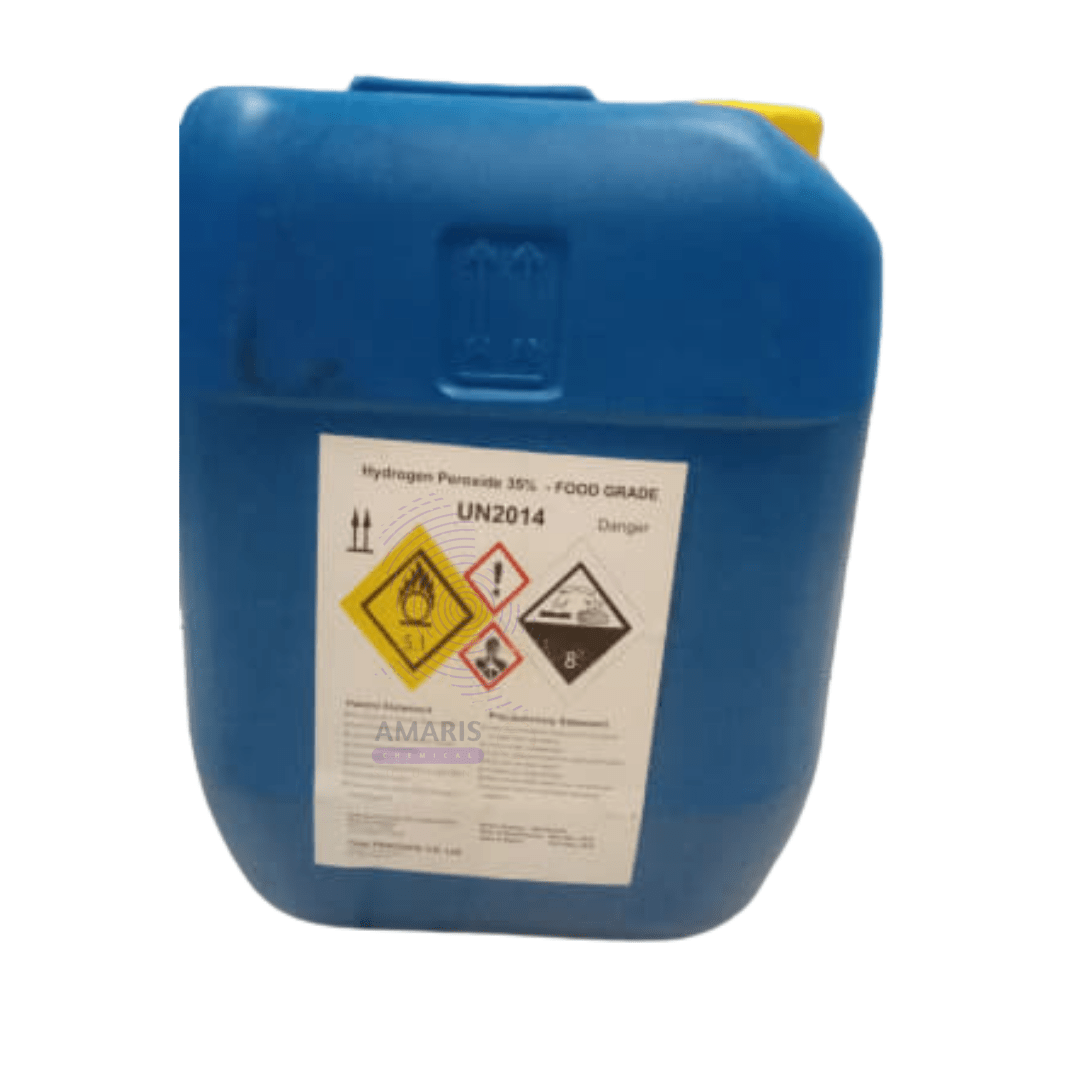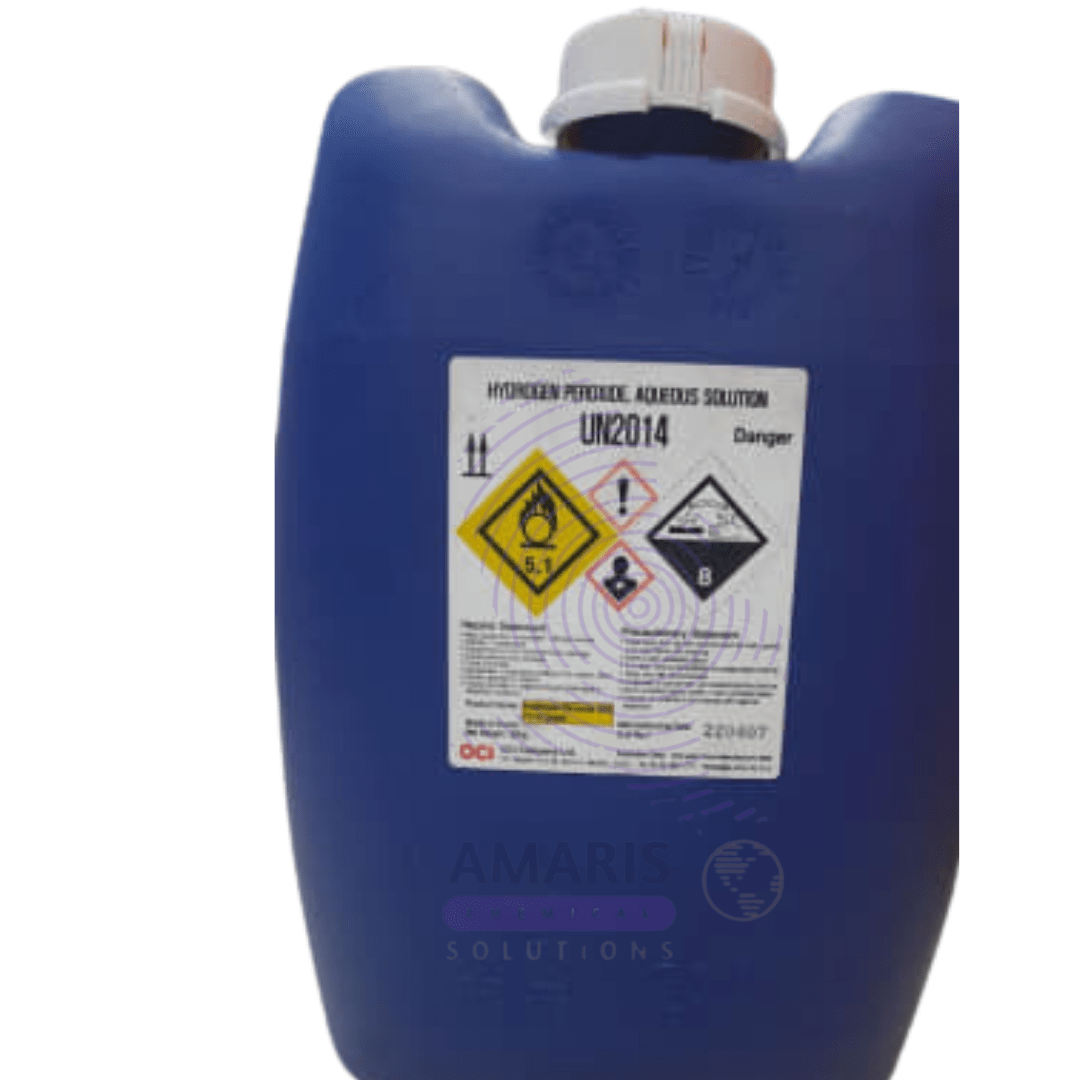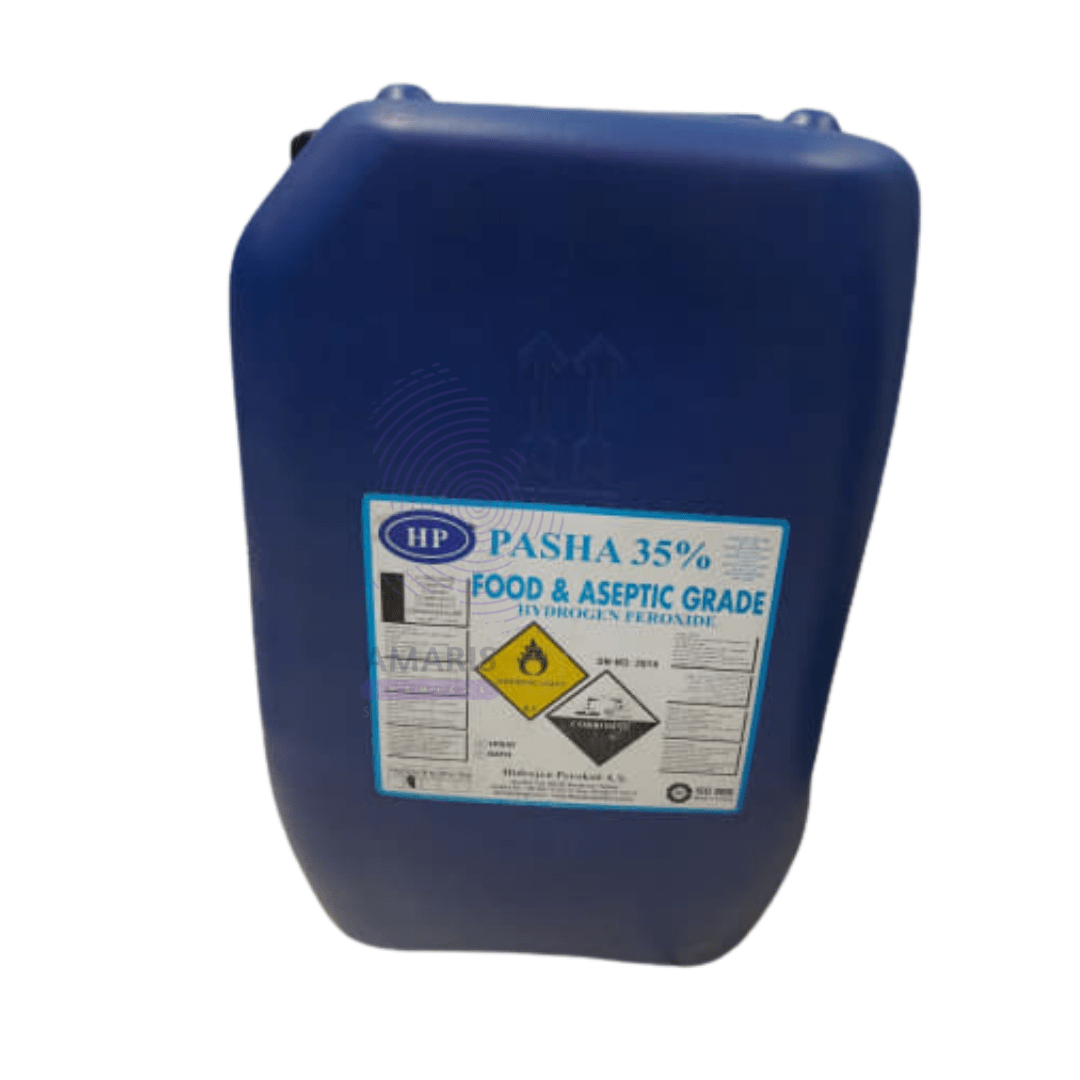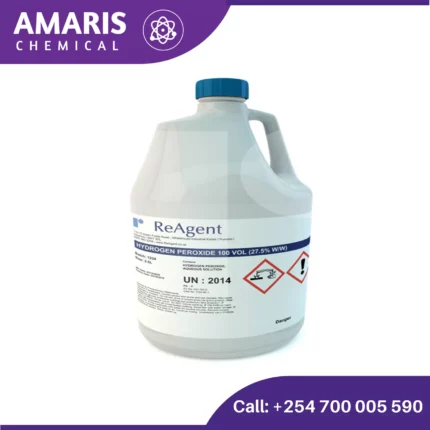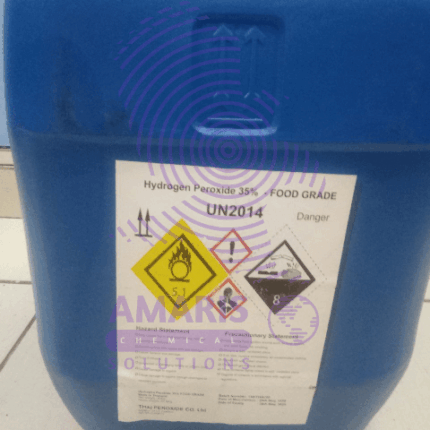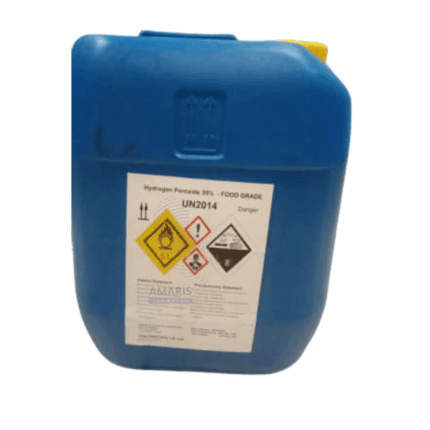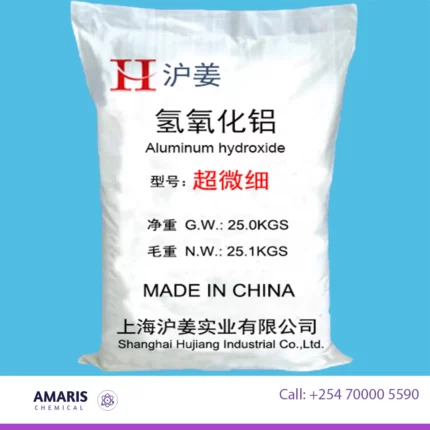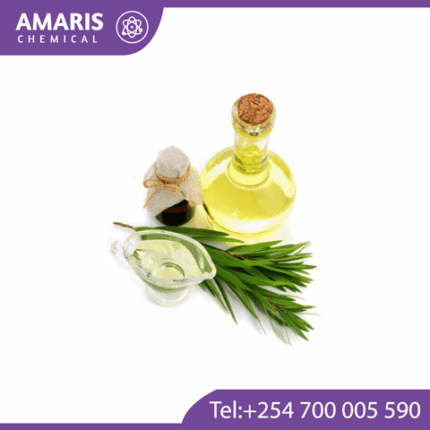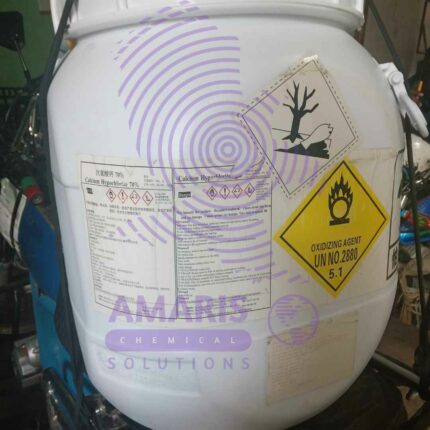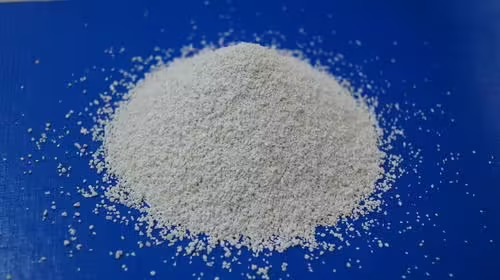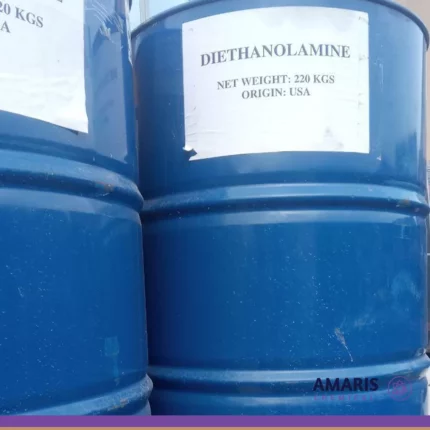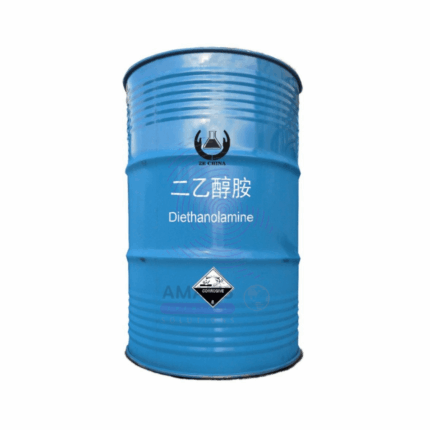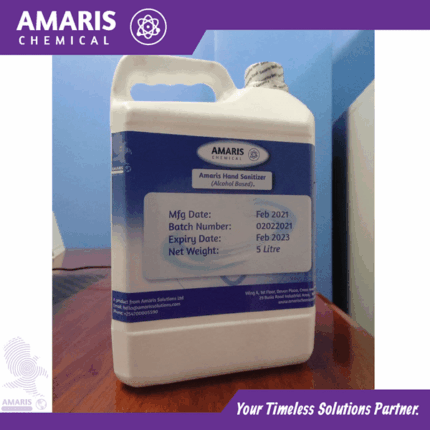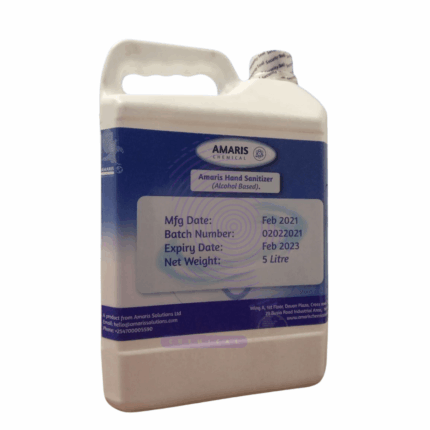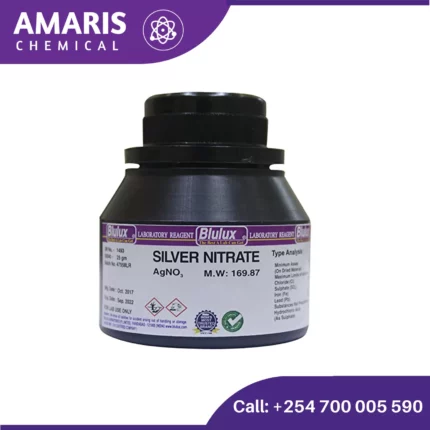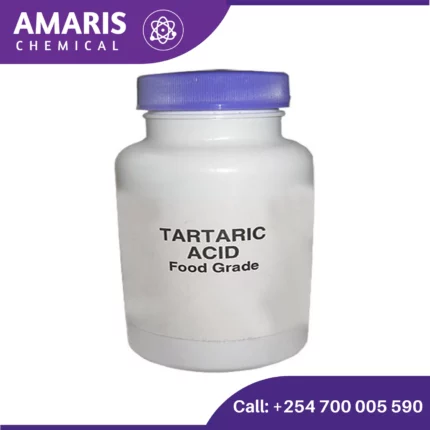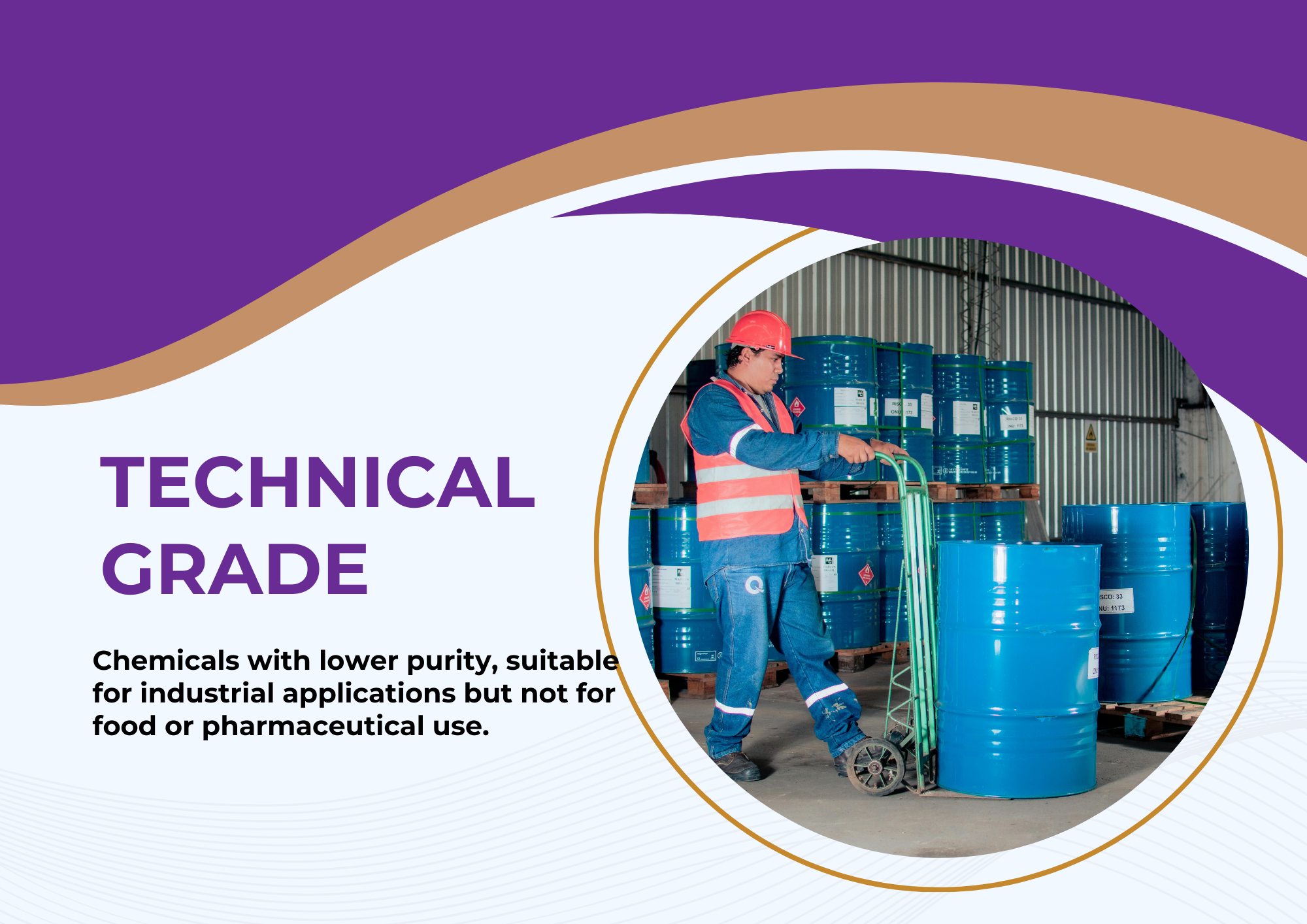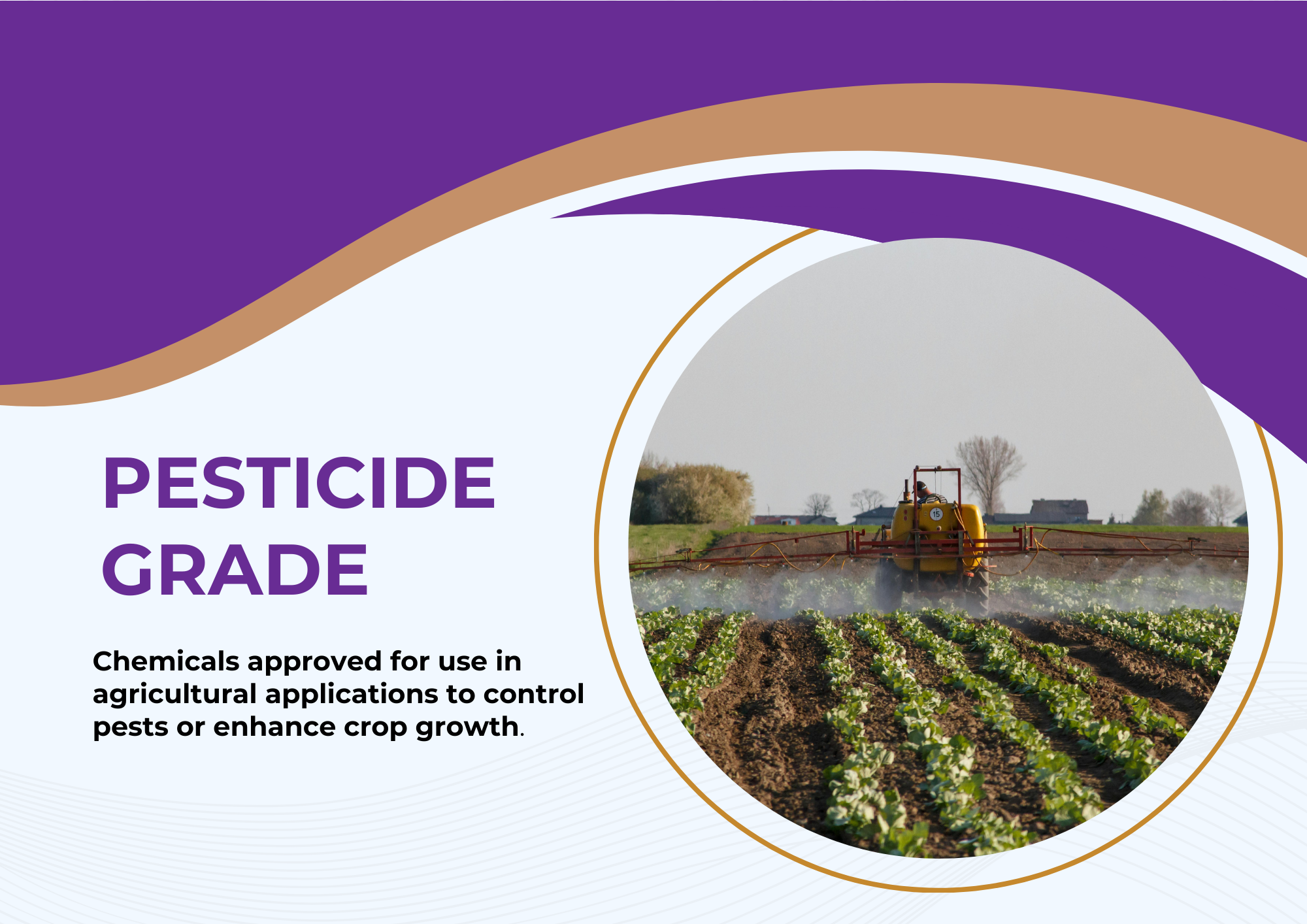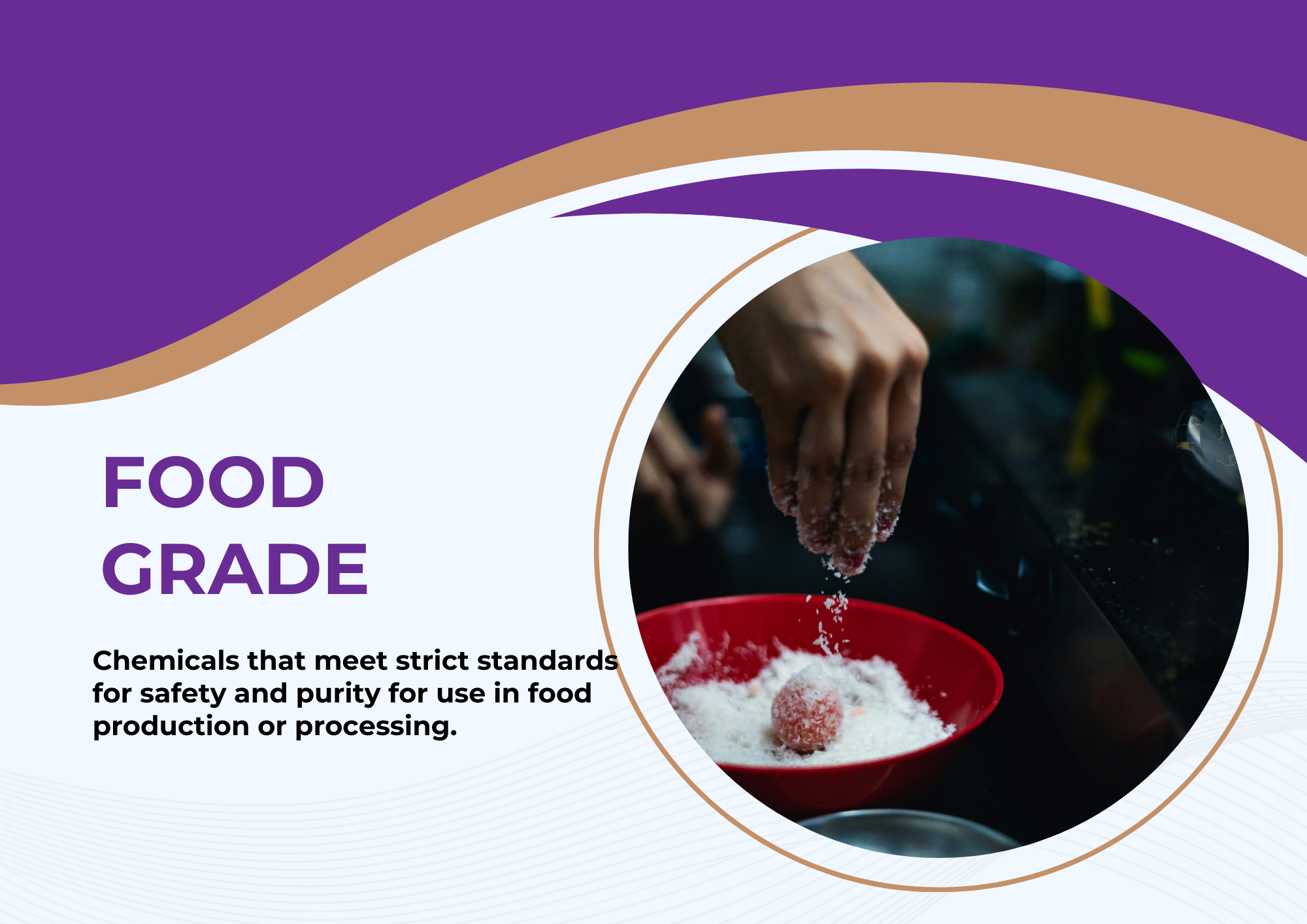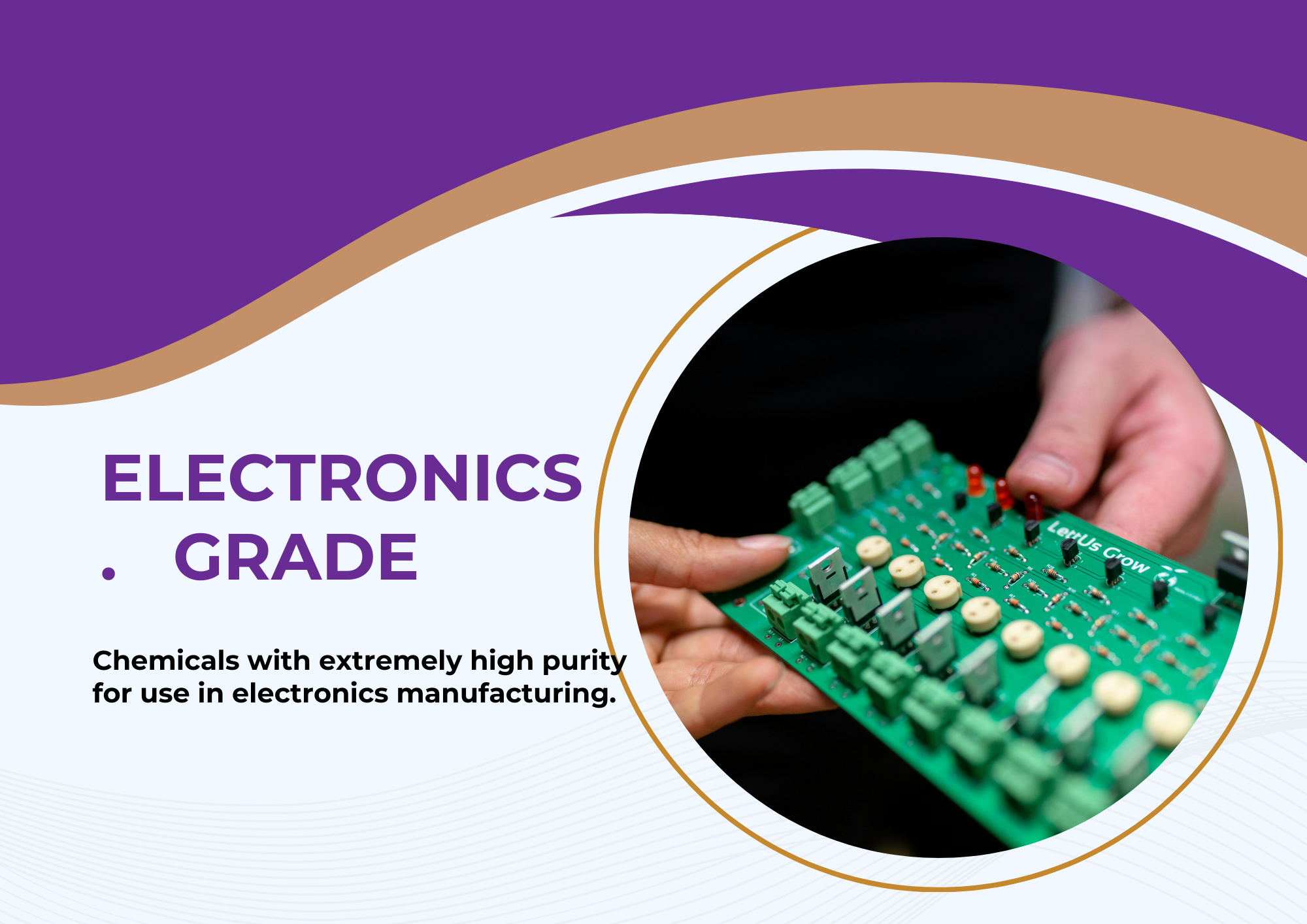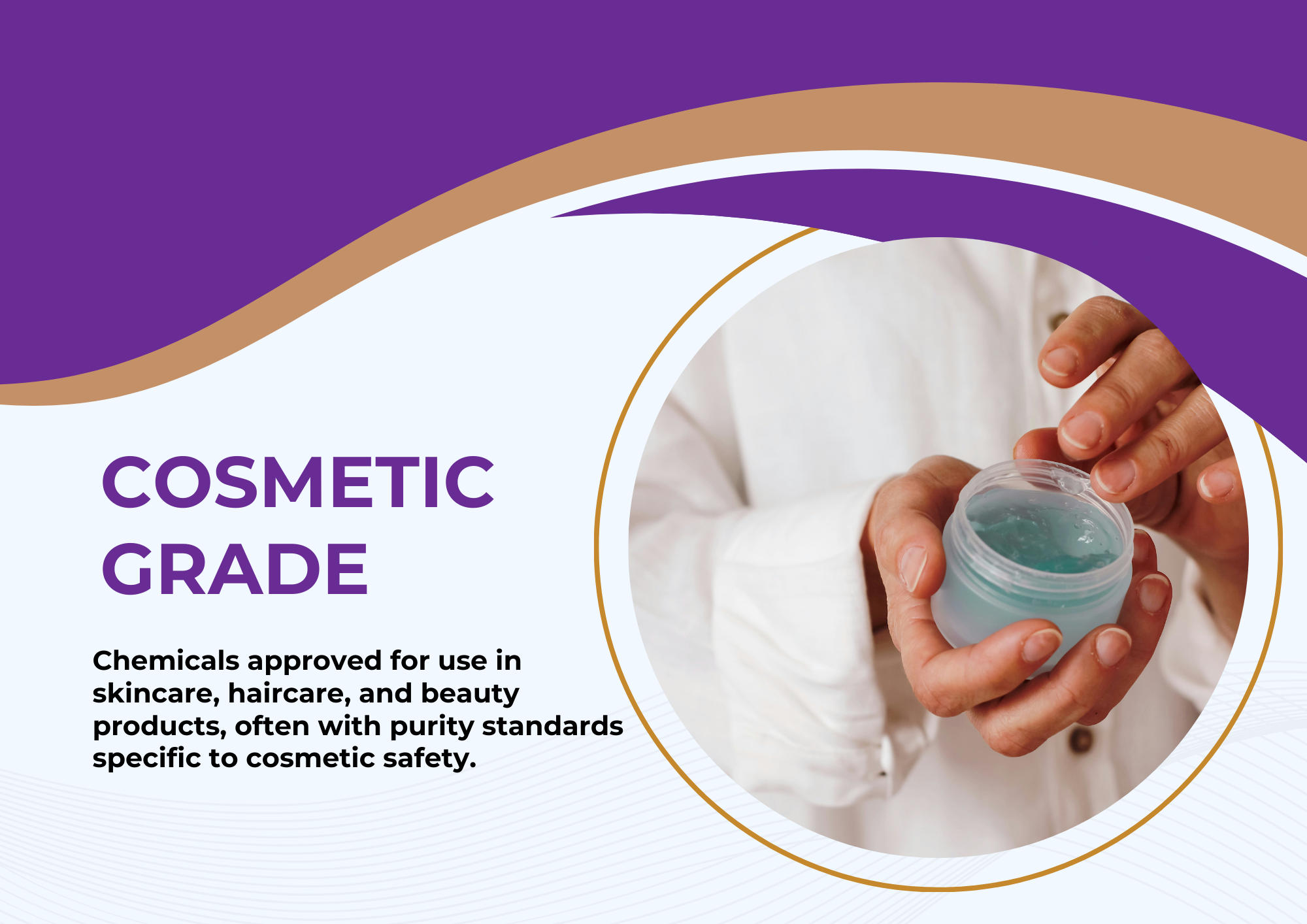“Zinc Carbonate 500gm” has been added to your cart. View cart
“Zinc Carbonate 500gm” has been added to your cart. View cart
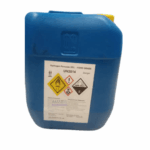
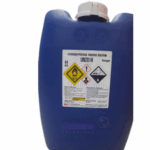
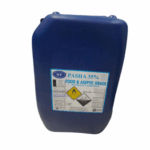
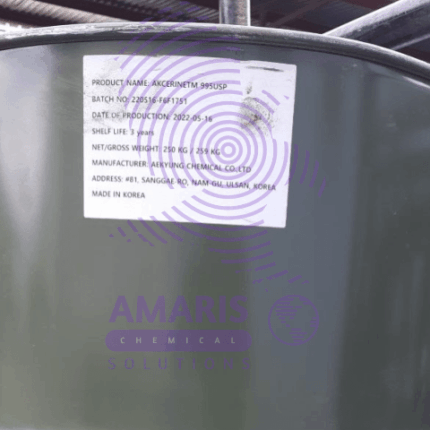
Glycerin 250kg Drum USP
KSh56,000.00 Original price was: KSh56,000.00.KSh55,000.00Current price is: KSh55,000.00.
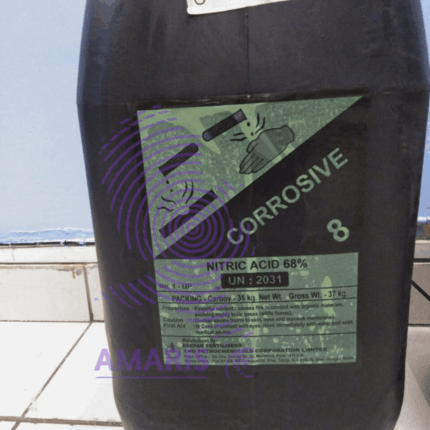
Nitric Acid 68% conc 35kg
KSh9,000.00 Original price was: KSh9,000.00.KSh8,500.00Current price is: KSh8,500.00.
Hydrogen Peroxide 50%
KSh7,500.00 Original price was: KSh7,500.00.KSh6,900.00Current price is: KSh6,900.00.
Hydrogen peroxide is a chemical compound with the molecular formula H2O2. It is a colorless and odorless liquid, which appears slightly more viscous than water. Hydrogen peroxide is a powerful oxidizing agent, meaning that it readily releases oxygen atoms in chemical reactions. It is commonly used as a disinfectant, bleaching agent, and in the production of other chemicals. In its pure form, hydrogen peroxide is highly reactive and can be dangerous, but when properly diluted, it can be used safely for a variety of applications.
SKU:
ACS61835CHEM0
Categories: Antiseptics and Disinfectants, Bleaching Agent, Catalysts, Oxidizing Agents
Description
Hydrogen peroxide
- Disinfectant: Hydrogen peroxide can be used as a disinfectant for surfaces, cuts, and wounds. It is a powerful oxidizer and can kill a wide range of bacteria, viruses, and fungi.
- Teeth whitening: Hydrogen peroxide is a common ingredient in many teeth whitening products. It can help remove stains and brighten teeth.
- Cleaning agent: Hydrogen peroxide can be used as a cleaning agent for various household surfaces. It is effective at removing stains, grime, and dirt.
- Hair lightening: Hydrogen peroxide can be used to lighten hair. It is commonly used as a DIY hair dye or highlighter.
- Laundry booster: Hydrogen peroxide can be added to laundry to boost the effectiveness of regular detergents. It can help remove stains and brighten fabrics.
- Mouthwash: Hydrogen peroxide can be used as a mouthwash to kill bacteria in the mouth and freshen breath.
- Gardening: Hydrogen peroxide can be used to kill fungus and bacteria in gardening. It can also be used to oxygenate the soil and help plants grow.
Shipping & Delivery
You may also like…
Hydrogen Peroxide 2,5litres extra pure
Hydrogen peroxide is a chemical compound with the molecular formula H2O2. It is a colorless and odorless liquid, which appears slightly more viscous than water. Hydrogen peroxide is a powerful oxidizing agent, meaning that it readily releases oxygen atoms in chemical reactions. It is commonly used as a disinfectant, bleaching agent, and in the production of other chemicals. In its pure form, hydrogen peroxide is highly reactive and can be dangerous, but when properly diluted, it can be used safely for a variety of applications.
Hydrogen peroxide 35% food grade
Hydrogen peroxide is a chemical compound with the molecular formula H2O2. It is a colorless and odorless liquid, which appears slightly more viscous than water. Hydrogen peroxide is a powerful oxidizing agent, meaning that it readily releases oxygen atoms in chemical reactions. It is commonly used as a disinfectant, bleaching agent, and in the production of other chemicals. In its pure form, hydrogen peroxide is highly reactive and can be dangerous, but when properly diluted, it can be used safely for a variety of applications.
Related products
Aluminum hydroxide
Aluminium hydroxide is a chemical compound with the formula Al(OH)3. It is an inorganic compound that is commonly used as an antacid to neutralize excess stomach acid, as well as a component in the manufacture of various products, such as ceramics, paper, and cosmetics. It is a white, powdery substance that is insoluble in water and has a low toxicity. When heated, it decomposes to produce aluminium oxide, or alumina, which is used in the production of aluminium metal.
Calcium hypochlorite granules (chlorine)
Calcium hypochlorite is a chemical compound with the molecular formula Ca(ClO)₂. It is commonly used as a strong oxidizing agent and disinfectant, releasing chlorine gas when it comes into contact with water. This chlorine gas is effective at killing bacteria, viruses, and other microorganisms, making calcium hypochlorite a popular choice for water treatment, sanitation of swimming pools, and disinfection of various surfaces. The compound's ability to release chlorine upon dissolution makes it a potent and convenient tool for disinfection and sanitation purposes.
Diethanolamine [C4H11NO2 or (CH2CH2OH)2NH]
Hand Sanitizer
Rated 4.75 out of 5
Silver Nitrate 25gm
Analytical Reagents, Antiseptics and Disinfectants, Electronic Chemicals, Microbiology and Cell Culture Reagents
Silver nitrate (AgNO₃) is a versatile and important compound with a wide range of applications. Here's a breakdown of its key properties, uses, and laboratory applications:
Properties:
- Formula: AgNO₃
- Appearance: White crystalline solid
- Odor: Odorless
- Solubility: Highly soluble in water
- Melting point: 212 °C (414 °F)
Tartaric Acid 500gm
Tartaric acid is a naturally occurring organic acid found in many plants, particularly in grapes, bananas, and tamarinds. It is well-known for its significant role in the wine industry, where it helps stabilize the wine and contributes to its taste. Here are some key aspects and uses of tartaric acid:
Chemical Properties
- Chemical Formula: C4_44H6_66O6_66
- Molecular Weight: 150.09 g/mol
- Appearance: White crystalline powder
- Solubility: Soluble in water and alcohol
Natural Occurrence
Tartaric acid is widely found in nature, predominantly in fruits like grapes, apricots, and apples. The potassium salt of tartaric acid, known as potassium bitartrate or cream of tartar, is a byproduct of winemaking.Industrial Production
Commercially, tartaric acid is often produced as a byproduct of wine production. The process involves:- Extraction: The sediment left in wine barrels, known as "lees," is treated to extract potassium bitartrate.
- Purification: The crude potassium bitartrate is then purified and converted to tartaric acid.
Zinc Chloride 500gm
Zinc chloride (ZnCl₂) is a white crystalline solid that is highly soluble in water. It is hygroscopic, meaning it can absorb moisture from the air. Zinc chloride is commonly used in various industrial applications, such as a flux for soldering, a catalyst in organic synthesis, and a wood preservative. It also has uses in textile processing, chemical synthesis, and as a disinfectant. Due to its ability to dissolve in water and its caustic nature, it should be handled with care, using appropriate safety measures.

